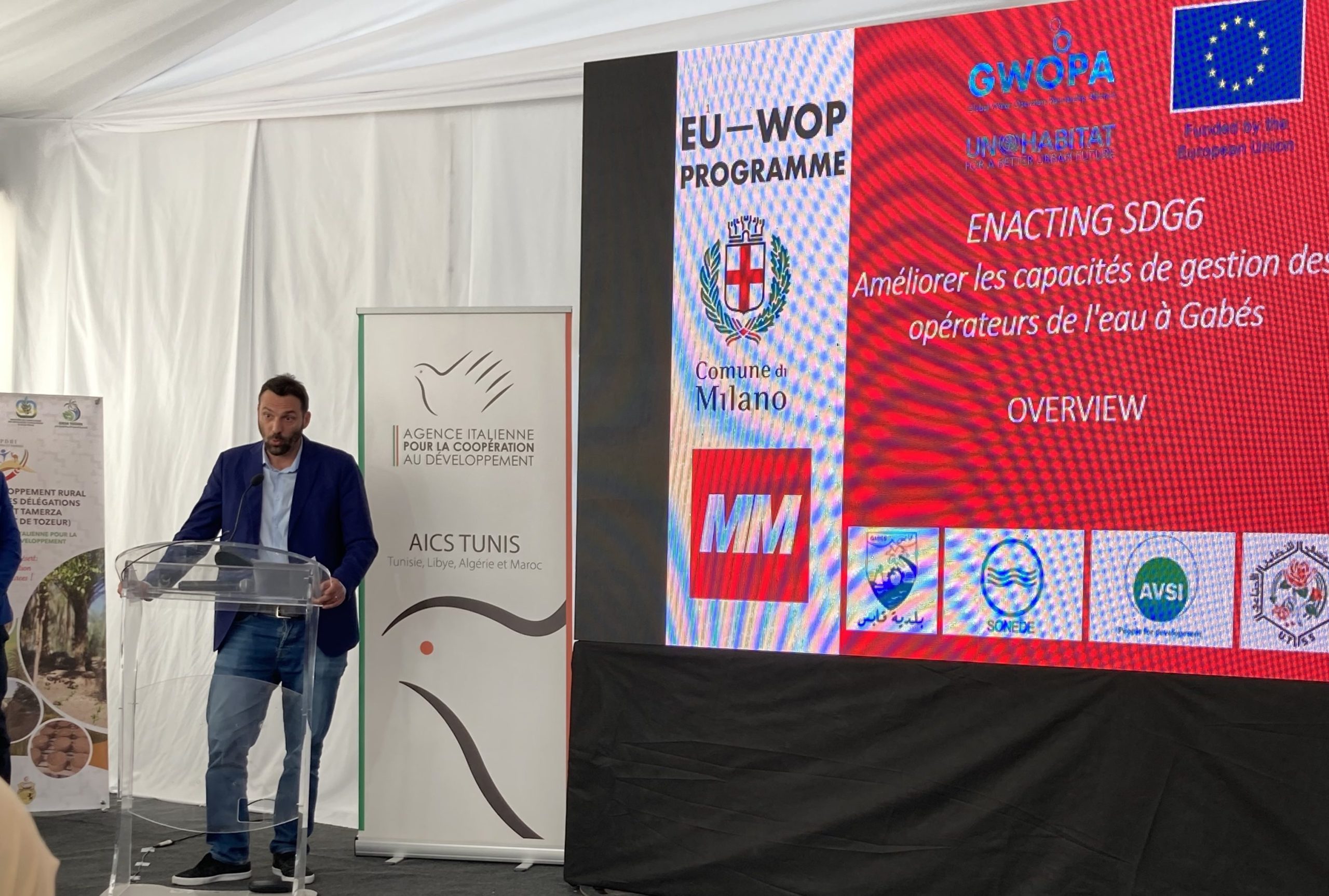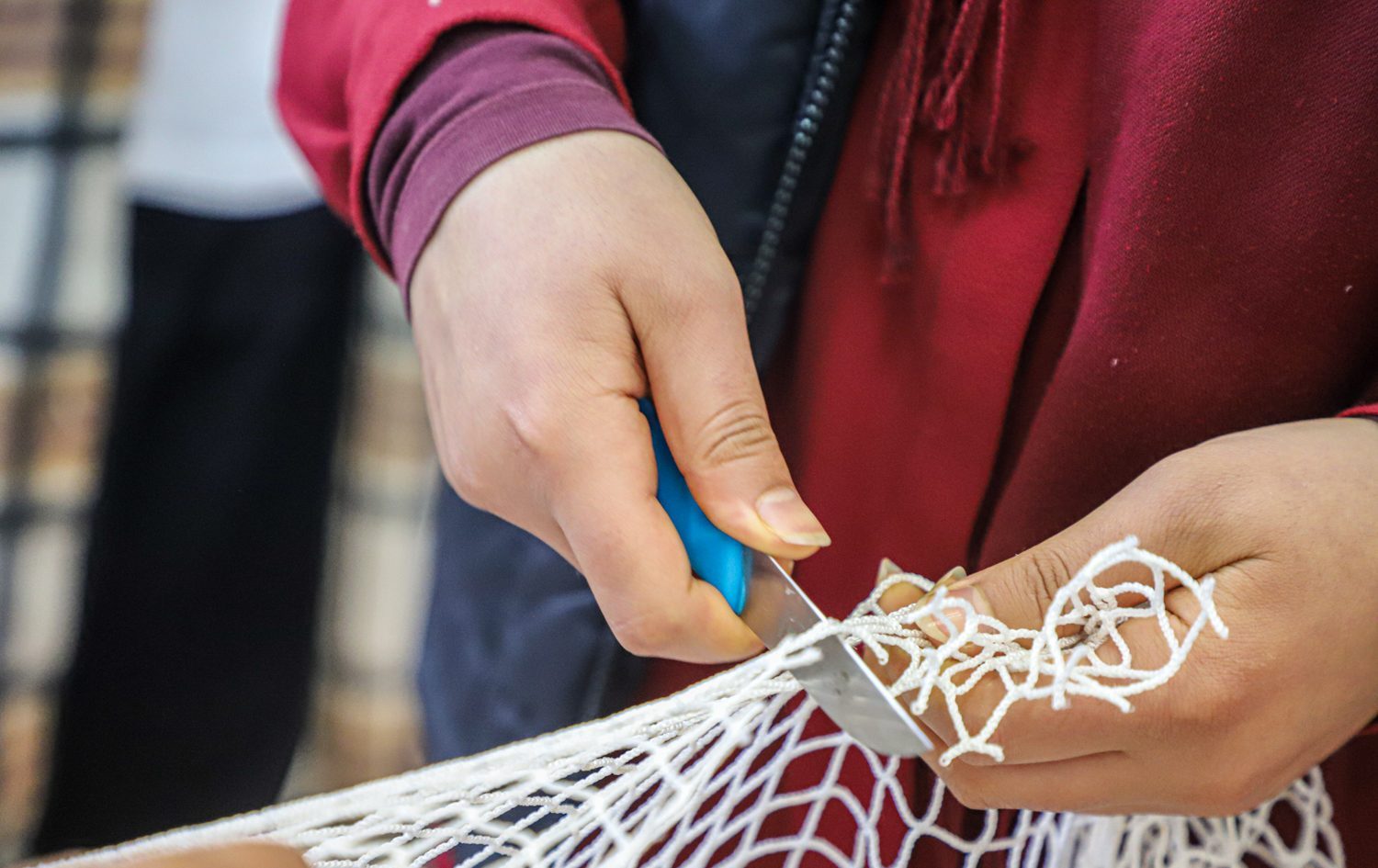AVSI in Tunisia
- Tunisi office 12 Rue de l’île de Rhodes,
Résidence Zarrad, Bloc A, 3ème étage bureau A32.
1053 Les Berges du Lac II, Tunis Emanuele Gobbi Frattini Country Representative [email protected]
AVSI began working in Tunisia in 2000 with a project to train teachers of 9 primary and secondary schools run by the Archdiocese of Tunis. In 2019, AVSI gained official recognition from the Tunisian government and opened an office in the capital. Today AVSI works in the most disadvantaged neighborhoods of Tunis and in the governorates of Ariana, Béja, Gabès, Mahdia, Manouba, Sfax, Siliana, and Tozeur.
The situation in Tunisia today
A condition of socio-economic fragility persists in Tunisia, characterized by a high unemployment rate and precariousness that undermines the confidence in the future of youth and other vulnerable groups. Access to the labor market, in particular, is an issue exacerbated by the consequences of two decades of heterogeneous crisis.
Indeed, the 2011 revolution marked the beginning of a democratic transition that has coincided with a period of economic stagnation, now further exacerbated by the depreciation of the dinar and rising inflation (+7.8 percent as of January 2024), which has resulted in worsening living conditions for the local population. Currently, the unemployment rate stands at 16.4 percent, but reaches 40.2 percent for young people, with a high percentage (26.3 percent) of NEETs.
In this context, precariousness and lack of economic prospects limit Tunisians' independence, fueling widespread feelings of frustration, disillusionment and distrust, and exposing them to the risk of marginalization and irregular migration.
AVSI's activities in Tunisia
- Water, environment and energy: natural resource management, renewable energy, sustainable fisheries and agriculture.
- Sustainable cities: promotion of bilateral cooperation between Italian and Tunisian cities.
- Social cohesion: promotion of inclusive spaces and activities that foster peace, equality and resilience.
- Education: capacity building for teachers and pupils.
- Vocational training and job creation: training and employment support for micro, small and medium enterprises, students and vulnerable groups.
- Migration: support for psycho-social and vocational reintegration of returning sub-Saharan migrants and prevention of illegal migration.
Active projects
- “BLUE MARINE” (2022-2024), in partnership with the Club Bleu Artisanal association and CRDA Ben Arous, and funded by the Italian Region Emilia-Romagna and TAUW Foundation. The goal of the project is to promote responsible and sustainable economic activities related to fishing in the areas surrounding the Grand Lac de Tunis and raise awareness of environmental protection.
- “CRABE BLEU” in partnership with the Club Bleu Artisanal association, CRDA Ben Arous, Mariscadoras SRL and the Work and Belong Cooperative, and funded by the Italian Region Emilia-Romagna. The project aims to protect the marine ecosystem from blue crab infestation by strengthening the fishermen's cooperative in the Radès area, developing ecologically sustainable activities, and raising awareness among young people in communities dependent on the maritime economy.
- “ENACTING SDG 6 - Rafforzare le capacità degli operatori idrici di Gabès” (2022-2025), in partenariato con MM Spa, il Comune di Milano, il Comune di Gabès, la SONEDE, l’associazione UTSS, e finanziato dal programma dell’Unione Europea WOP (Water Operators Partnerships). Della durata di 3 anni, il progetto mira a migliorare le capacità operative, finanziarie, sociali e ambientali degli operatori idrici di Gabès, nel sud della Tunisia.
- “MAISON: ponti di speranza per migranti ivoriani tra Tunisia e Costa d’Avorio” (2023-2026), 2023-2026), in partnership with AVSI in Côte d'Ivoire, IOM Tunisie, IOM Côte d'Ivoire and Caritas Côte d'Ivoire, and funded by the Italian Bishops' Conference. The project aims to facilitate the reintegration in Côte d'Ivoire of returning migrants leaving Tunisia, from a psycho-social, training and employment perspective.
- “Mediterranean: Frontier of Peace, Education and Reconciliation“ (2024-2025),(2024-2025), in partnership with Rondine Cittadella della Pace and the Salesians of Don Bosco. The project aims to create an educational and recreational space within the Medina of Tunis that can serve as a reference point for young people in the neighborhood and foster their personal and professional growth.
- “OASI-SCUOLA: quando la bellezza educa e protegge” (2021-2024) (2021-2024) in partnership with the Department for Teaching of the Archdiocese of Tunis and the Salesians of Don Bosco, and funded bythe Italian Bishops' Conference. The project aims to contribute to the social inclusion of Tunisian youth through the improvement of formal educational services and recreational and playful activities.
- “Sport building future in Béja”(2023-2024), in partnership with ATEC, Commissariat Regional de l'Education Béja, Commissariat regional de la Jeunesse et de Sport Béja, and funded by GIZ. The project aims to foster inclusive youth development through sports and educational activities in 15 schools in the governorate of Béja.
- “SUMUD: resilienza, innovazione e sostenibilità per MPMI artigianali, agricole e turistiche in Tunisia” (2022-2025), in partnership with APAD, OXFAM, the Italian Region Toscana and SHANTI, and funded by the Italian Agency for Development Cooperation (AICS). It aims to support enterprises operating in the three sectors to increase financial and socio-occupational resilience in the governorates of Mahdia, Sfax, Siliana and Tozeur.
- “TAMASUK: cohésion et inclusion socio-économique de la jeunesse de Kabaria, Mnihla et Douar Hicher”(2023-2025), in partnership with ACEC and Olympique Mnihla, and funded by UNDP. It aims to strengthen the socioeconomic integration of young people living in vulnerable neighborhoods in Grand Tunis through vocational training and cultural and sports activities.











